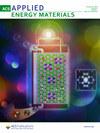焦虑会增加政策学习吗?
IF 5.4
3区 材料科学
Q2 CHEMISTRY, PHYSICAL
引用次数: 0
摘要
焦虑是否会影响公职人员处理政策信息的方式?常有人认为,决策者缺乏政策学习可以解释越来越多的政策失败。以往的研究表明,社会经济变量和党派变量与政策信息的感知有关,但很少有人关注焦虑等情绪在决策过程中的作用。在本文中,我们从个人层面研究了焦虑对瑞士地方官员政策学习的影响。我们在政策学习文献中引入了马库斯的情商模型--该模型研究情绪如何影响个人的信息处理。为了检验该模型的预期效果,我们利用了从瑞士 26 个州的地方民选官员中收集的新实验数据。在实验中,我们随机展示了引发焦虑的图片和政策信息。我们提供的证据表明,焦虑对学习具有积极的因果效应。考虑到这一效应的潜在调节因素,我们发现这种关系并不受先验强度或对公共政策复杂性认知的影响。然而,这些变量却与政策学习密切相关。我们的发现对于更好地理解信息如何影响决策具有重要意义。本文章由计算机程序翻译,如有差异,请以英文原文为准。
Does anxiety increase policy learning?
Does anxiety affect how public officials process policy information? It is often argued that the increasing number of policy failures can be explained by a lack of policy learning by decision makers. While previous studies show that socioeconomic and partisan variables are related to the perception of policy information, little attention has been paid to the role of emotions, such as anxiety, in the policymaking process. In this paper, we investigate the impact of anxiety on the policy learning of local office holders at the individual level in Switzerland. We introduce the Marcus' Affective Intelligence Model—which examines how emotions affect individuals' information processing—to the policy learning literature. To test the expectations of the model, we draw on novel experimental data collected among local elected officials from the 26 Swiss cantons. In the experiment, we randomly display anxiety‐inducing images along with policy information. We provide evidence that anxiety has a positive causal effect on learning. Considering potential moderators of this effect, we show that the relationship is not conditioned by the strength of priors or the perceived complexity of public policies. However, these variables are substantially correlated with policy learning. Our findings have important implications for better understanding how information influences policymaking.
求助全文
通过发布文献求助,成功后即可免费获取论文全文。
去求助
来源期刊

ACS Applied Energy Materials
Materials Science-Materials Chemistry
CiteScore
10.30
自引率
6.20%
发文量
1368
期刊介绍:
ACS Applied Energy Materials is an interdisciplinary journal publishing original research covering all aspects of materials, engineering, chemistry, physics and biology relevant to energy conversion and storage. The journal is devoted to reports of new and original experimental and theoretical research of an applied nature that integrate knowledge in the areas of materials, engineering, physics, bioscience, and chemistry into important energy applications.
 求助内容:
求助内容: 应助结果提醒方式:
应助结果提醒方式:


